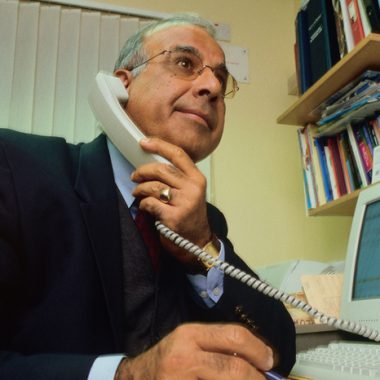Should I report a patient I suspect of benefits fraud?


Dr Matt Burkes – Report the patient openly, not anonymously
Putting aside how enthusiastic you feel about adding state benefit surveillance to your role as a GP, it is not right to make an anonymous tip-off. If you feel you cannot talk to the patient and that it is your civic duty to report them, this should be done through normal channels.
This goes back to GMC guidance that says ‘confidentiality is central to trust between doctors and patients’.1 Any action that jeopardises this should not be taken lightly. The case for maintaining a confidential health service goes beyond the individual patient-doctor relationship and is compelling. Society as a whole clearly benefits – the treatment of communicable disease being the often cited example.
Having said this, confidentiality may be broken in certain circumstances; if ordered by a judge, if the patient consents or if the benefits to the public interest outweigh both the individual’s and society’s interest in maintaining confidentiality. The GMC gives the example of protecting a patient, or society, from serious harm or crime.
In this case, you should ask yourself whether the potential benefit fraud amounts to a serious societal harm or a serious crime? If you feel it doesn’t, then clearly confidentiality should not be broken as the situation does not fulfil the criteria for disclosure.
If, however, you feel it does, then note that the GMC also advises that one should inform the patient of any disclosure made – unless doing so would put you or others at serious risk.
The GMC also advises that you document this in the patient’s notes.
Dr Matt Burkes is a GP in Chichester, West Sussex. He is the co-editor of The Good GP Training Guide (RCGP Press)

Dr Toni Hazell – Ignore your suspicions and focus on patient care
GPs often get dragged into discussing non-medical issues – housing, benefits, work-related stress. Some patients are doing their best to navigate a complicated system, but occasionally I have become aware that there is fraud. It’s never clear what to do in response.
GMC advice says that disclosure is justified only to prevent others from death or serious harm, or to prevent or detect a serious crime. It seems unlikely that saving taxpayers’ money would fill those criteria anyhow, and you might have interpreted the situation wrongly.
We’re GPs, not social workers, benefits advisers or fraud investigators. Accusing a (possibly innocent) patient of fraud would fatally undermine the doctor-patient relationship and could lead to a complaint. Decline to write supporting letters for the claim, by all means, but keep your nose out of it and concentrate on treating sick people.
I can’t claim to be an expert in the benefits system and there is a fine line between exploiting loopholes and outright fraud. I don’t think this meets the criteria to break confidentiality.
Dr Toni Hazell is a GP in north London and e-learning development fellow at the RCGP

Dr Helen Manson – Discuss your concerns with the patient
It is unlikely that a patient would consent to information about them being passed on in this situation. Nevertheless, discuss your concerns with them in the hope of preventing them from continuing to be fraudulent.
The conversation might prove your suspicions untrue, but if not, the GMC advises that if you decide to contact the police the patient should be informed, unless this is not practical, would put someone at risk of serious harm, or might interfere with the purpose of disclosure. Disclose the minimum information necessary.
Whether or not you’re justified in disclosing their concerns depends on the extent of likely harm of the suspected crime.
Weigh up the damage that disclosure might do to the doctor-patient relationship as well as to trust in the medical profession. Contact your medical defence organisation for advice.
It is in the public interest for patients to trust that their information will be kept confidential. Doctors must generally gain patient consent before disclosing information.
The exceptions to this rule are if the doctor considers it justified in the public interest, if remaining silent may risk death or serious harm to an individual, or if disclosing would assist in the prevention, detection or prosecution of a serious crime.
The GMC considers serious crimes to include those involving ‘substantial financial gain or loss’, but does not define substantial.
Dr Helen Manson is a medicolegal adviser at the Medical Defence Union
Pulse October survey
Take our July 2025 survey to potentially win £1.000 worth of tokens












